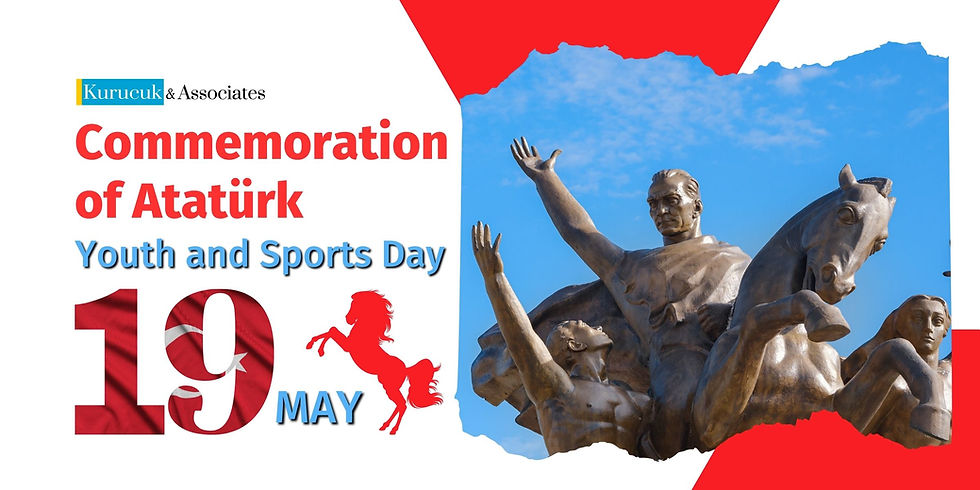The Conquest of Istanbul: A Historic Turning Point and Celebrated National Holiday
- Özgür Kurucuk

- May 29, 2023
- 4 min read

"What a great commander will be the man who conquers it, what a great army that army shall be."
The Conquest of Istanbul: A Historic Turning Point
The conquest of Istanbul, also known as the fall of Constantinople, marked a significant turning point in history. On May 29, 1453, the Ottoman Empire, under the leadership of Sultan Mehmed II, captured the Byzantine capital of Constantinople, bringing an end to the Byzantine Empire and paving the way for Ottoman rule in the region. This monumental event had far-reaching consequences, not only for the Turkish and Muslim world but also for international politics and the cultural renaissance of Europe.
Consolidation of Ottoman Power and Unification of Turkish Populations
Following the conquest of Istanbul, the Ottomans proceeded to establish hegemony over numerous independent Turkish states (Beylik) within Anatolia. The result of this imperial conquest was the unification of Turkish populations in Anatolia. The Ottomans brought together other non-Turkish Muslim communities and principalities under their leadership, ultimately transforming the Ottoman Beylik into a powerful empire. The conquest of Istanbul played a crucial role in consolidating Ottoman power and uniting diverse Turkish and Muslim populations.
Impact on International Politics and European Relations
The conquest of Istanbul had a profound impact on international politics, particularly in relation to European Christendom and the Crusaders. For centuries, European powers had sought to evict Muslims from Asia Minor, with Istanbul functioning as a crucial border station for the Crusaders. However, with the Ottoman conquest, the sovereignty of the Muslims in Asia Minor was secured, and they were no longer under threat from the Crusaders. This shift in power dynamics led to a transformation in the perception of Ottoman Muslims, who eventually began campaigns in Europe, demonstrating their military prowess and challenging the notion of European superiority. The conquest of Istanbul became a historic turning point in proving Ottoman superiority over Europe.
Intellectual Exchanges and the Renaissance
Another critical aspect of Istanbul's significance in world events and history lies in its relationship to the Renaissance. Following the conquest, many Byzantine artists and intellectuals migrated to European centers, primarily Rome, bringing with them valuable manuscripts and knowledge about advanced intellectual developments. These Byzantine intelligentsia played an instrumental role in reviving and revising classical Greek culture, which sparked the ideological revolution known as the European Renaissance. The clash and reunification of the two divergent schools of thought, Byzantine and European, catalyzed a cultural renaissance, transforming European intellectual and artistic landscapes forever. The intellectual exchanges facilitated by the conquest of Istanbul played a vital role in shaping the Renaissance movement.
Celebration of the Conquest: A National Holiday
The significance of the conquest of Istanbul is not forgotten in modern Turkey. It is commemorated annually on May 29th, which is celebrated as "Conquest of Istanbul Day" or "Victory Day." The declaration of this day as a national holiday reflects the deep historical and cultural importance of the event.
Historical Significance and Cultural Heritage
The celebration of the conquest of Istanbul serves as a reminder of the city's rich history and cultural heritage. The conquest marked the end of the Byzantine Empire and the beginning of Ottoman rule, shaping the course of Turkish and Muslim history. Istanbul, with its iconic landmarks and historical sites, stands as a testament to this pivotal moment. The city's vibrant past and the legacy of the conquest are honored through various ceremonies, events, and festivities.
Commemorative Activities
On Conquest of Istanbul Day, Istanbul comes alive with numerous activities and events. One of the main highlights is a reenactment of the siege and conquest, which takes place near the historic areas of the city. Actors dressed as Ottoman soldiers and Byzantine defenders recreate the dramatic moments of the battle, allowing visitors to witness and experience the intensity of the historical event.
The celebrations also include parades, fireworks displays, concerts, and cultural performances held throughout the city. Streets are adorned with flags and decorations, creating a festive atmosphere. Many people gather in public squares and parks to celebrate the day with their families and friends, enjoying the vibrant ambiance and participating in various traditional activities.
In recent years, the celebrations have expanded to include military processions and airshows, showcasing Turkey's modern armed forces and paying tribute to the country's military heritage. These displays not only serve as a reminder of the historical conquest but also highlight Turkey's present-day strength and unity.
Reflection, Pride, and Unity
Conquest of Istanbul Day is a time for reflection, pride, and unity among the Turkish people. It symbolizes the strength, determination, and resilience of the Ottoman Empire and its people. The celebration fosters a sense of national pride, reinforcing the shared heritage and historical achievements of the Turkish nation. It serves as an occasion for Turks to come together, remember their history, and celebrate their cultural identity.
From Battle to Festivity
The conquest of Istanbul, a monumental event in history, marked the beginning of Ottoman rule and shaped the course of Turkish and Muslim history. The impact of this conquest extended beyond borders, influencing international politics and contributing to the cultural renaissance of Europe. Today, the annual celebration of Conquest of Istanbul Day on May 29th serves as a reminder of the city's rich history and cultural heritage. Through various activities and festivities, the Turkish people honor the past, reflect on their achievements, and strengthen their sense of national unity. The conquest of Istanbul continues to be a symbol of pride and inspiration, connecting the present-day Turkish nation with its remarkable historical legacy.



